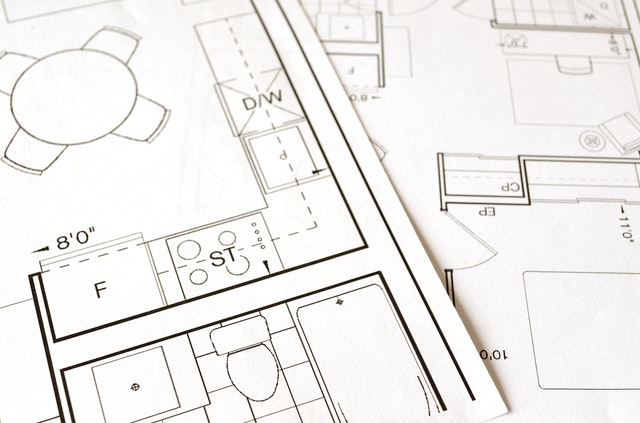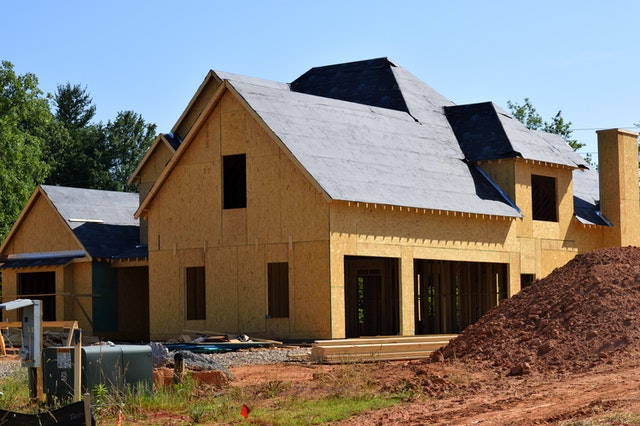People staying at home because of the pandemic have turned to various hobbies and talents to pass the time. Occasionally, people have tapped into hidden reserves of skill, such as baking banana bread or making DIY step stools. However, some have chosen to use their time more constructively, in a literal sense.
This is a contributed post and do not necessarily reflect the opinions of Meet The Harris Family.
According to reports, there was a surge in home improvement projects across the United States in the past year. A survey revealed that as many as 76 percent of homeowners in the country have undertaken at least one home improvement project in 2020, with a further 78 percent planning on carrying out another within the next year.
If you plan to start a home building project of your own any time soon, you should do so armed with useful advice.
Here are eight tips on how you can make a home improvement project more efficient and cost-effective.
1. Know Your Limits
Before you even begin to seriously consider tearing up your bathroom tiles or installing a tankless water heater on your own, you need to take stock of your abilities. How good are you at carpentry or plumbing? Assessing your skills prior to actual construction can save you a lot of money and prevent you from wrecking your home. Realistically assess your capabilities and know when you can do something yourself and when you should call a contractor licensed by the state.
2. Check Out New Materials
Don’t be shoehorned by years of practice and know-how. Take the time to look into new materials and tools available to you. If you’re retiling your bathroom, you may automatically think of normal ceramic tiles but are there better and cheaper alternatives that have been recently developed? Asking these questions and checking out new things may help reduce the cost of your project.
3. Make Your Budget Roomy

Home improvement projects can be messy at the best of times, especially if you’re winging it on your own. That’s why it’s prudent to make room in your budget for any mishaps and setbacks. Without a financial safety net for your home improvement efforts, your construction project may stall because a single setback cost you too much money.
4. Create a Timeline
Your home improvement project needs to have a start date and an end date. This schedule is important to keep you on track and prevents you from making unnecessary alterations to your original plans. Your timeline is the backbone of your project and sticking to it will ensure you don’t go overbudget and bog down your efforts.
5. Consider Trends Carefully
You may want to undertake an improvement project because you want to keep up with current home trends and make your home more appealing. However, not all home trends can be easily replicated, especially by someone without formal training and experience. Other trends may look simple but actually be expensive. Before you commit to renovating your home to copy a trend, assess all aspects of it carefully, from the cost to the level of experience needed to pull it off successfully.
6. Protect Your Materials
Materials cost money and therefor you should do your best to prevent them from getting lost or damaged. For example, ceramic tiles can cost anywhere between $5 or $10 per one-foot piece. Breaking one tile may not seem like a big deal, but every tile broken is money down the drain. The same goes for seemingly inconsequential materials like sand, bricks or cement. Their loose nature makes them more susceptible to loss and therefor should be protected even more.
7. Secure Permits Early

Construction projects are carefully regulated affairs because they can pose risk to lives, alter the safety of a home and affect the integrity of an entire neighborhood. For these reasons, they’re all carefully regulated, which means permits. Ask around if the home project you want to undertake requires ant sort of permit. This is more common with outdoor projects, like firepits and patios, but it can cover vital projects that involve plumbing and electricity. Not filing proper permits can cause delays or even hefty fines which can put a stop to your projects altogether.
8. Adjust Plans Accordingly
Remember to be reasonably flexible with all your arrangements while trying to stick to them. If you’re a beginner in home construction, you need to give yourself more time to familiarize yourself with the tools and get your routine down. You also don’t know when an emergency or a mishap can happen. Be flexible with your time frame and your budget, and you’ll have an easier time adjusting.
Home improvement doesn’t have to be as difficult as you imagine it to be. Careful planning and diligent preparation can make your home improvement endeavors more streamlined and affordable.


